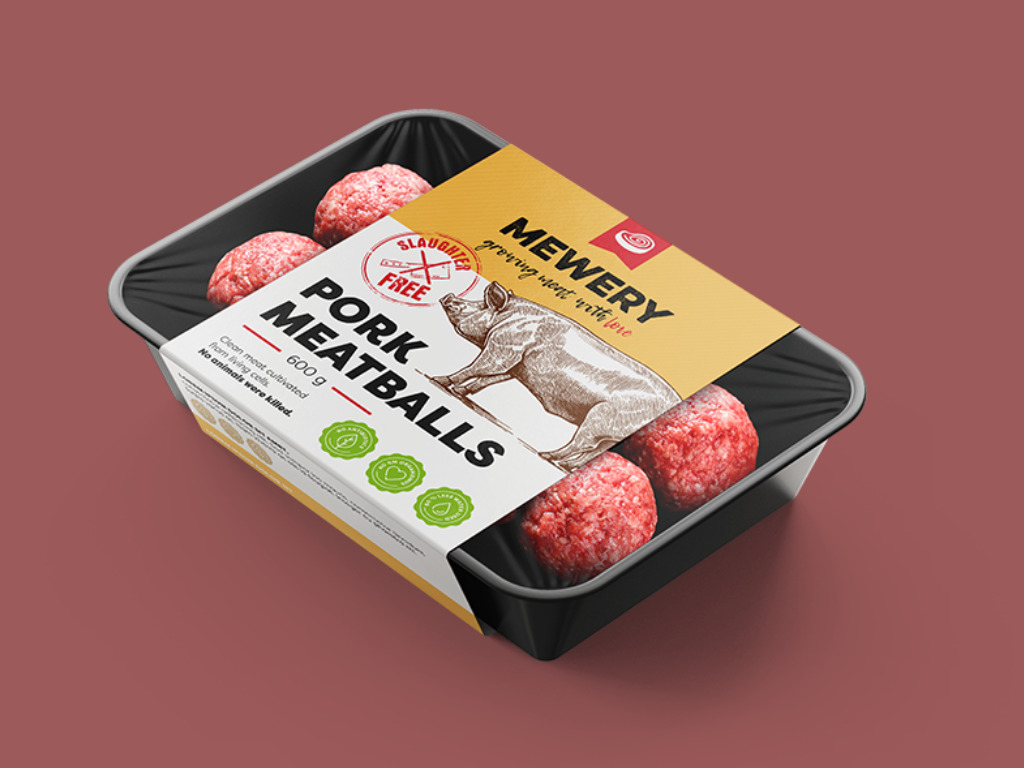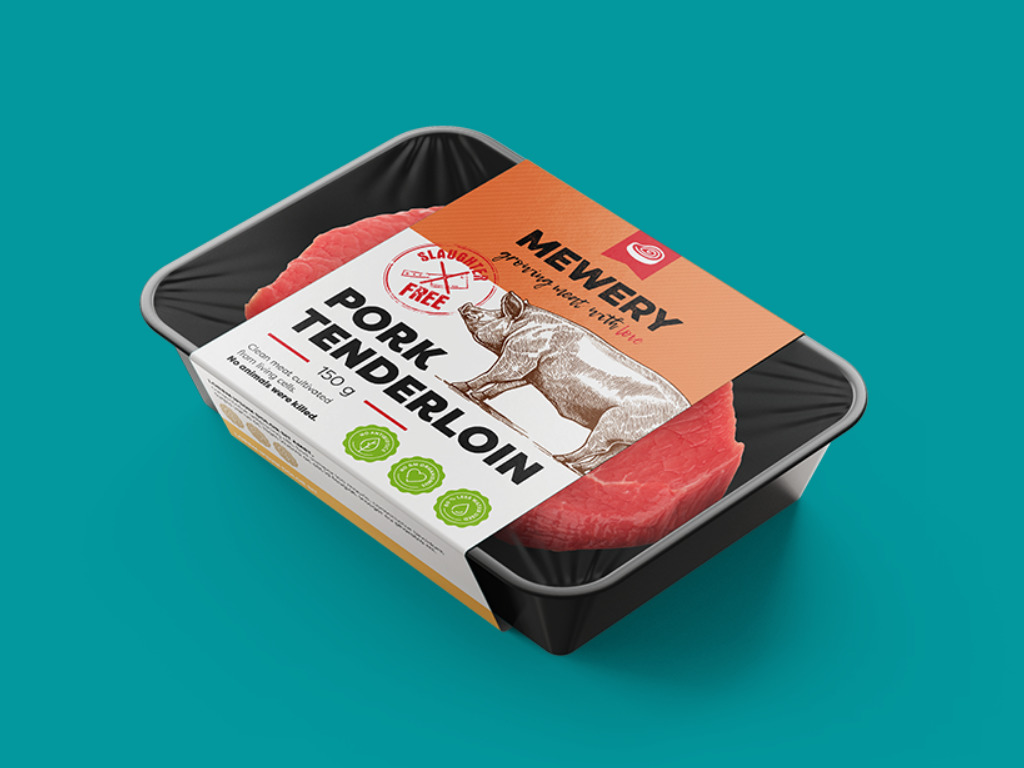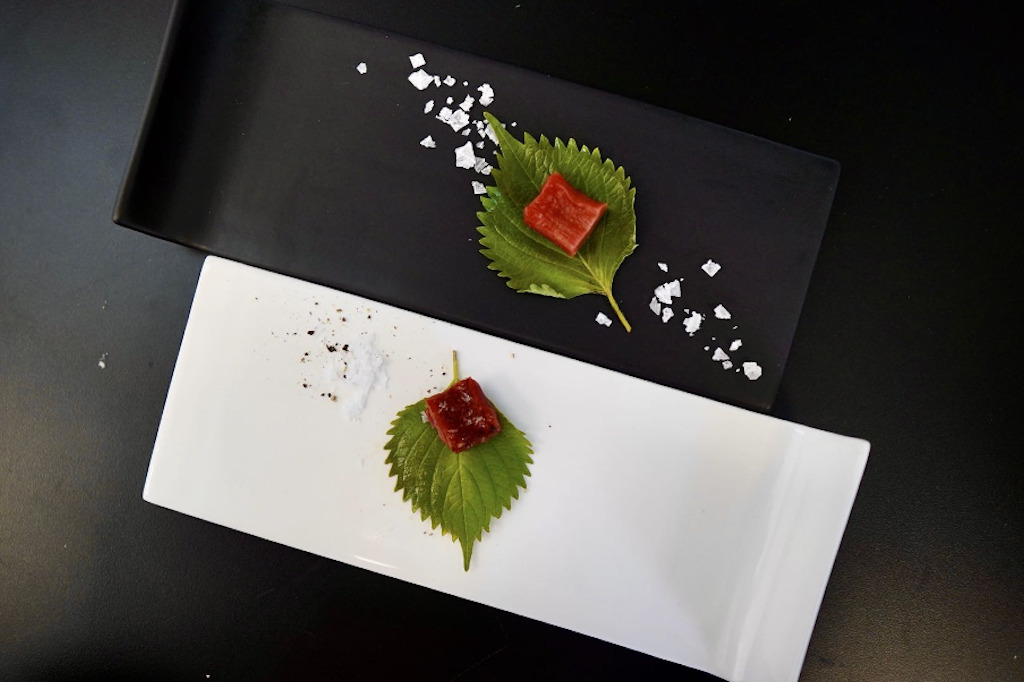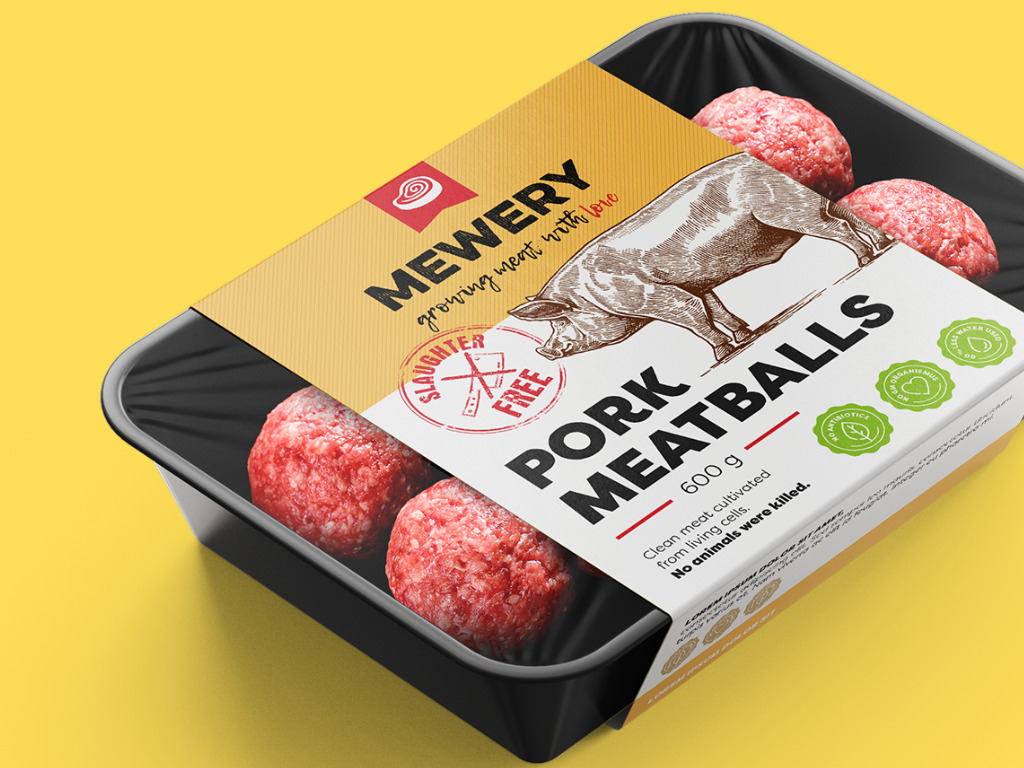4 Mins Read
Czech foodtech startup Mewery is developing cultivated pork on microalgae scaffolding. The company claims it is the first in Europe to be doing so. Using the regenerative plant base allows for significant production cost savings, reportedly of 70 percent. Mewery is eyeing 2026 for market entry, pending E.U. regulatory approval for cell-based meat.
The startup has recently received backing from Big Ideas Ventures in an undisclosed private investment round as part of the latter’s accelerator. A subsequent open funding raise is in the planning stage to bring fresh investors on board later this year. Mewery is not rushing to market, as despite other cultivated companies claiming to be ready to sell, the Czech startup has stated that more needs to be done to improve end products.

Meat produced in a different way
“We love meat but hate the way it’s done,” Mewery states. “That’s why we’ve decided to change that. We are a team bringing together business and science experience with one common goal – to cultivate meat without killing a single animal or harming the planet.”
Focussing on pork, Mewery stands to make a big impact on animal agriculture. It is the second most eaten meat in the world, with significant regions, including Asia and Europe, making it their first preference. The environmental impact of keeping up with worldwide demand is taking its toll, however, as are supply chain interruptions within the pig farming sector.
The global pork market is estimated to reach $258 billion by 2027. Asia remains the biggest driver, claiming more than 50 percent of total pork produced. 2022 is expected to see China produce more than 50 million metric tonnes of pig meat, compared to 47.5 million tonnes in 2021.
It is estimated that for every kilo of pork meat that is ready to eat, 6.1 kilos of carbon dioxide equivalent is released into the atmosphere. The footprint of the pork sector is causing concern, alongside other red and processed meats, particularly beef. Cultivated meat manufacturers are looking to offer conventional meat-eaters an alternative to simply switching to plant-based foods.

Taking pigs out of the equation
Mewery has deliberately avoided beef and poultry for its initial developments. The startup states that this is due to three considerations: there is scope to be a leader within porcine cells, the scale of the pork sector globally and competitive edge. Roman Lauš, founder and CEO of Mewery claims that most other cultivated companies are looking to produce beef or chicken, leaving a gap for a pork pioneer.
In an interview with Radio Prague, Lauš indicated that he is catering for meat fans, not vegans or vegetarians. He notes that within the Czech Republic there are existing plant-based meat alternatives, which fail to deliver on taste and texture, but that he is looking to develop real, clean pork. He states that his meat will allow people to make a significant impact on the environment, without having to change their diet. He accepts that education will be vital to consumer uptake, as well as price parity to conventional meat. Mewery is targeting the latter by avoiding the use of fetal bovine serum.
“One really needs to understand that the process of cultivating meat in the lab is just another process by which cells grow. It’s not Frankenstein-meat, it’s not something completely strange – these methods have been used in pharma for many years. The way we get meat now through industrial farming to our table is not sustainable – it cannot survive. So this is one of the options – not the only one, but one – for how to make our world more sustainable and to also get protein to an ever-growing population.”

The cultivated pork innovators
So far, most of the cultivated pork movement has been coming from Asia. In light of food security concerns arising from the African swine fever outbreak in 2019, Asia is looking to control its pork supply more carefully. When the outbreak was at its peak, China’s domestic pig numbers were decimated, leading to increased imports. As a consequence, an openness to domestic cultivated meat developments has been observed in Chinese officials, notably President Xi.
Shanghai-based CellX first debuted cultivated pork in 2021, alongside closing a $4.3 million funding round. Skip ahead to earlier this month and the startup has secured another $10.6 million in a Series A raise. Now the best-funded cultivated meat company in the country, CellX is pressing ahead with scaling for anticipated commercial pork production.
In South Korea, Space F is making progress with its own pork development, having recently unveiled version two. It came as the startup unveiled its new beef and chicken prototypes. Like Mewery, Space F has concentrated on creating serum-free meat, to maintain ethical advances over conventional meat production.
Lead image by Mewery.




